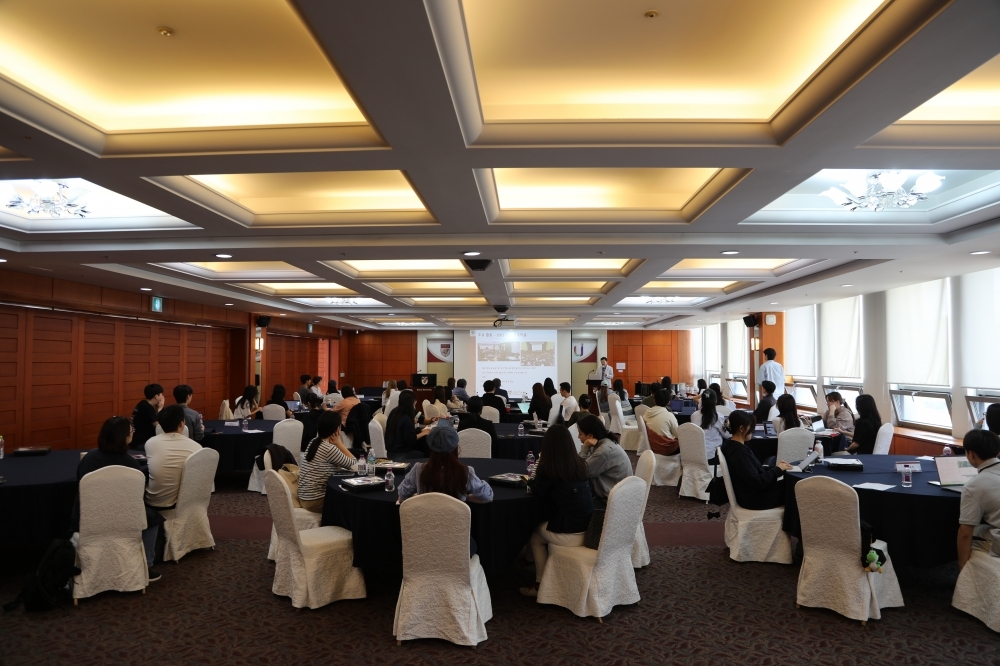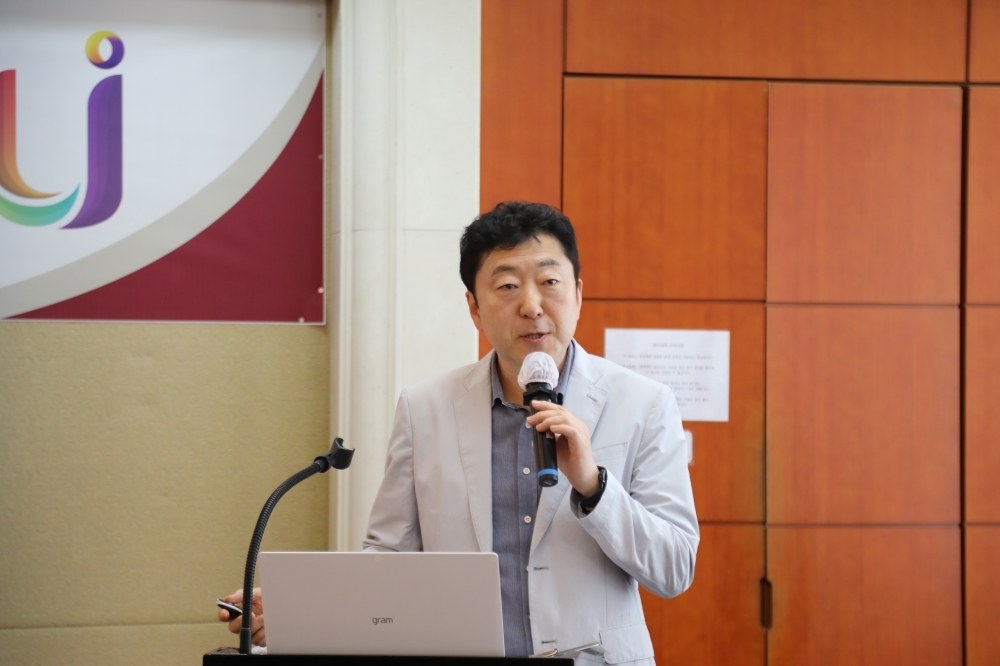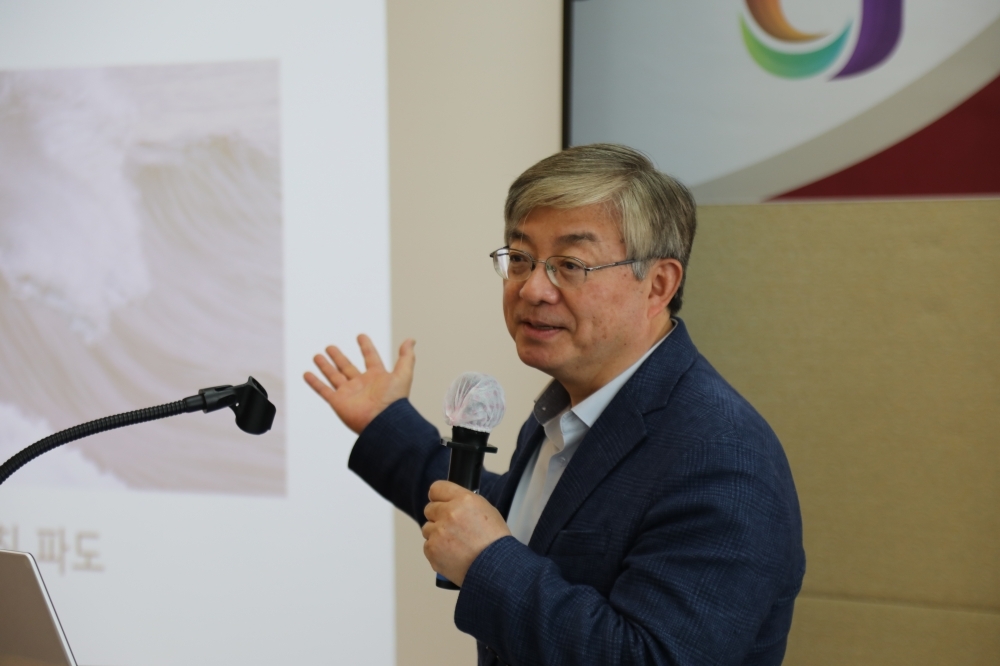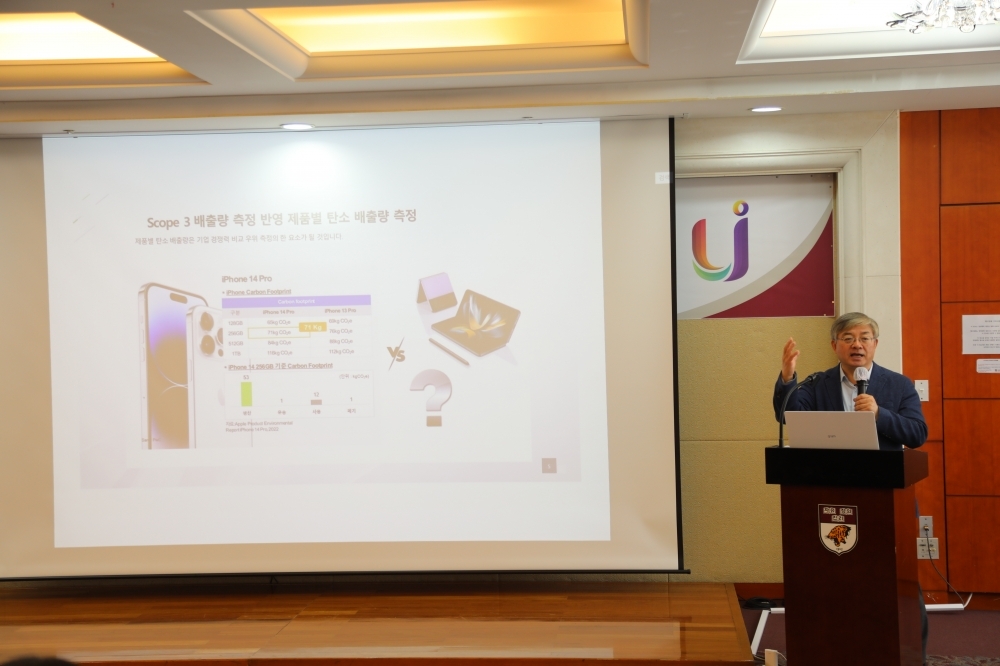News
KUBS News
ESG Yesterday and Today, and the Paris Agreement… ESG Lecture Series by UN Global Compact Korea Secr
2024.05.28 Views 2897 국제실
ESG Yesterday and Today, and the Paris Agreement… ESG Lecture Series by UN Global Compact Korea Secretary-General Yeoncheol Yoo
On April 30, the Korea University Business School (Dean=Sangyong Kim) held an ESG Lecture Series (hereafter referred to as the lecture) at Ahn Young-Il Hall in the LG-POSCO Building. This lecture was hosted by the ESG Research Institute (Head=Jaehyuk Lee) affiliated with the Korea University Business School, and the speaker was Yeoncheol Yoo, Secretary General of the UN Global Compact Korea. He is also a former Climate Change Ambassador and a seasoned expert who has studied climate change and climate crises for decades.

First, Head Jaehyuk Lee briefly introduced the ESG Research Institute. He highlighted, "The ESG Research Institute is the first of its kind in the country to study ESG at a university level," and added, "We are conducting various seminars and lecture series on global ESG management, which has become a significant topic worldwide."

Before delving into the main lecture, Secretary General Yoo presented several intriguing questions to the audience: Why did the global ESG boom arise around 2020 despite ESG's long history? What are the climate-related Paris Agreement and the 2050 carbon neutrality goal? What roles do companies play in achieving these carbon neutrality goals and ESG management? Is ESG merely a trend or a marketing tool?
Secretary General Yoo began by discussing the history of ESG and the recent ESG boom. The concept of ESG originates from sustainable development, which first appeared in the document "Our Common Future," published by the World Commission on Environment and Development in 1987. This document introduced the idea of sustainable development, encompassing environmental and development issues. In 1992, global representatives agreed to promote sustainable development through the 'Rio Declaration' at the United Nations Conference on Environment and Development.

ESG first appeared in the 2004 UN Global Compact report titled "Who Cares Wins." Following this, former UN Secretary-General Kofi Annan emphasized the necessity of responsible investment that considers environmental, social, and governance factors, leading to the launch of the UN Principles for Responsible Investment (PRI) in 2006. Secretary General Yoo explained, "The subsequent establishment of the Paris Agreement on climate change (2015), the setting of carbon neutrality goals (2020), and the trend of stakeholder-centric approaches through business roundtables have closely connected with the global ESG boom."
He then explained the Paris Agreement. Unlike the previous climate-related Kyoto Protocol, which emphasized historical responsibility and required developed countries to reduce greenhouse gas emissions, the Paris Agreement emphasizes the participation of all parties, highlighting shared responsibilities across past, present, and future. While the Millennium Development Goals focused on eradicating poverty in developing countries, the Paris Agreement emphasizes the restoration of social communities and the global ecosystem through the participation of all countries and stakeholders.
Secretary General Yoo assessed the Paris Agreement as the establishment of a new climate regime, stating, "Responding to climate change is an irreversible trend for the international community, and the Paris Agreement represents a sustainable expansion of the Kyoto Protocol in terms of time and space." He then sequentially presented the 2050 carbon neutrality goal, the roles of ESG companies, and their response strategies.

Finally, Secretary General Yoo spoke about the future prospects of ESG. He remarked, "The necessity of ESG management will not disappear and is expected to continue steadily through 2024." However, he noted that it might slow down compared to the past due to various adverse circumstances such as elections. He advised, "For a transition to ESG management, it is crucial to simultaneously implement a dual strategy based on the concepts of inclusiveness and diversity."


